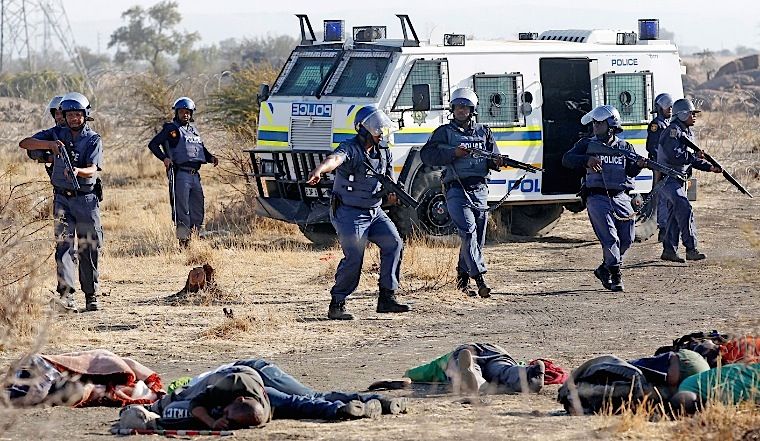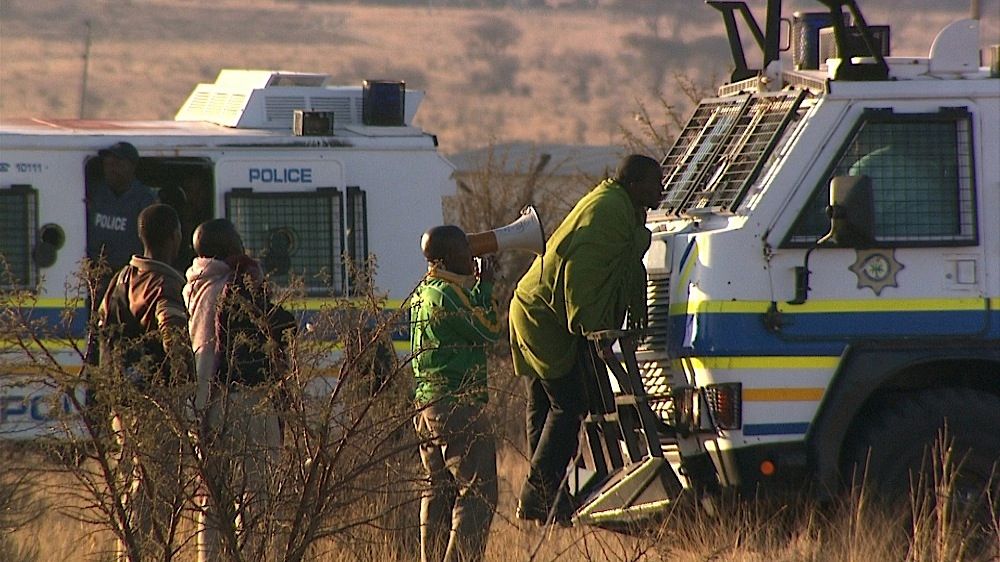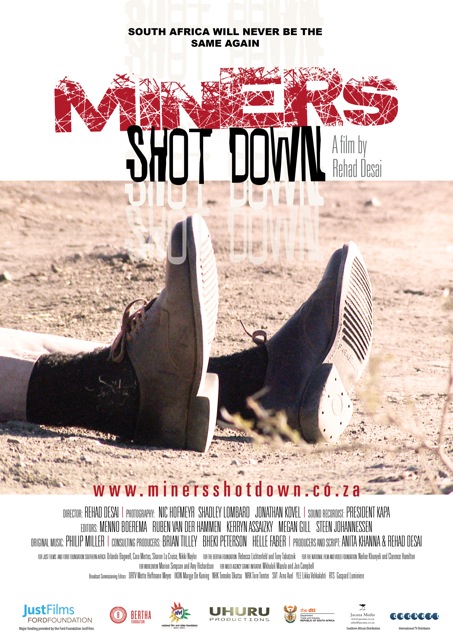Marikana. It hogged our headlines, for a time. We all think we’ve heard the story (ie.); the power struggle between AMCU and NUM, the thuggery and violence, the 34 killed never forgetting the police officer …what Miners Shot Down does is to show us the many gaps in our knowledge.
Although a tad sympathetic to the miners, this documentary illustrates once again that Marikana is more pivotal than we care to believe in shaping what the new South Africa means especially when the little man fights big business. Let's dig in.
Produced and directed by Rehad Desai, who's made such epic documentaries as a Robert Mugabe: What happened? and Alexandra (that aired on SABC 1 last month on Mondays) ... Miners Shot Down counts down the last seven days to the Marikana massacre.
It uses security footage taken by Lonmin and the police, news reports, photographs and testimonies from the Farlan Commission and eye witness accounts to put its case forward and what a case it builds. It also features Cyril Ramaphosa and the lawyers of the miners. The perspecitive of the police via the commission and video archives.

What we see makes us question our news reporting, the role of Lonmin and finally our government. So many facts and contexts jump out and it made me wonder how come I’m hearing about these facts for the first time?
Maybe I haven’t been paying too much attention to the Farlan commission but issues around the use of the razor wire was the first time I heard of ... some of the shocking stuff happens to be in videos we've seen so many times, but this time it is shown in the entirety and shows shocking visuals that never made it to our news before - and the question is why? Especially when it comes to videos showcasing the police mishandling of the situations before even the fateful day of the massacre.
Yet no matter what fence of the Marikana argument you stand; these were workers fighting an unjustifiable system vs these hooligans who were killing people, polar opposite camps. One thing you can’t take away from Miners Shot Down is its raw emotional gravitas.
It makes us understand the workers were just people who wanted a little more - just like Oliver Twist and were gunned down for it. They were not out for blood nor criminals masquerading as revolutionaries, they were workers who were let down by the state and the police.

Desai is very sparing on the use of voice-over, which lets the archive footage and the interviewees put their case forward - except for Cyril who holds onto the 5
th (yes
ga se mo states mo’states
mo , we don’t have a 5
th amendment but there are poignant questions he refuses to answer because he might still testify at the Farlan commission, which is a pity). Like the guys at 1994 a Bloody Miracle, there are some cool drone aerial shots too here, but they are sparingly used … the documentary is mostly centred on what the people are saying and the archives.

In general the documentary paints a very disturbing image of big business and government; at the beginning of the documentary one of the strikers asks “ Is the mine managers blood more valuable than that of the miner” to paraphrase.
By the end of the documentary you feel that question has been answered when you we see the mechanization and countless opportunities that were missed to circumvent 16 August 2012 in Marikana. If you want to see what those missed chances and mind boggling decisions were, you need to sit down and watch Miners Shot Down for youself…the scale of irony of the tragedy and brutality at play will leave you shocked. The struggle for human dignity continues in modern day South Africa.
Rating *****
*junk **almost bearable ***now we cooking ****almost perfect *****classic ++++++++++++++++++++++++++++++++++++++++++++++++++++++